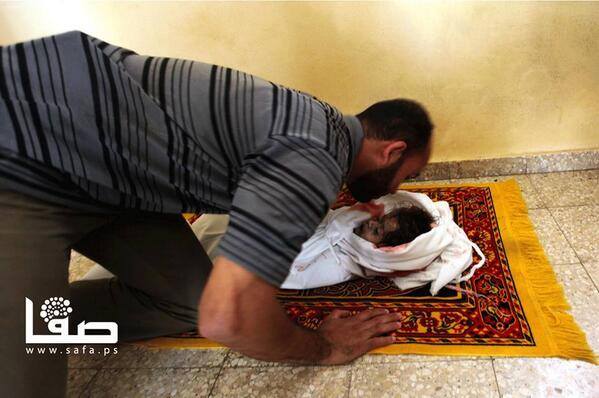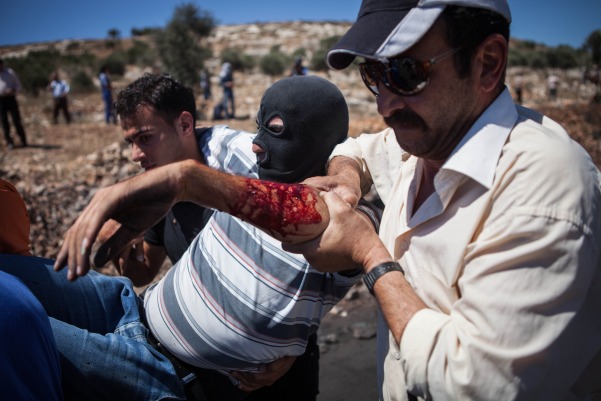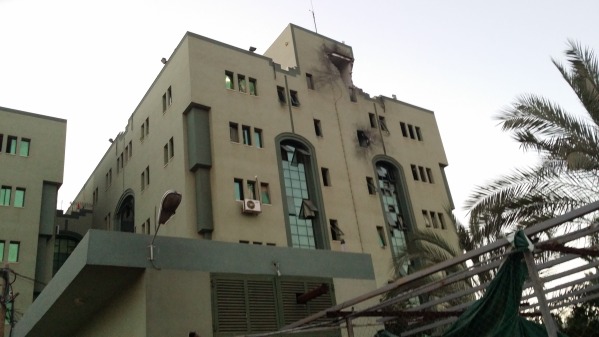-
Urgent call from Gaza civil society: act now!
13th July 2014 | Gaza Civil Society, originally published here | Gaza, Occupied Palestine We, Palestinians trapped inside the bloodied and besieged Gaza Strip, call on conscientious people all over the world, to act, protest, and intensify the boycotts, divestments and sanctions against Israel until it ends this murderous attack on our people and is held to […]
-
Israeli forces shoot five protesters with live ammunition at Kufr Qaddum demonstration
12th July 2014 | International Solidarity Movement, Nablus team | Kufr Qaddum, Occupied Palestine There were roughly 100 people demonstrating in Kufr Qaddum yesterday. A number of the Palestinian youths present began to throw stones, when suddenly a young Palestinian fell to the ground, clutching his leg. An entry wound and an exit wound could clearly be seen. A […]
-
International activists remain in Gaza hospital threatened by Israeli missiles
11th July 2014 | International Solidarity Movement| Gaza, Occupied Palestine Israel’s army fired four ‘warning’ missiles at the roof of El-Wafa rehabilitation hospital in Gaza City, Gaza. International volunteers now staying in the hospital in solidarity, have said they, “can hear missiles falling close by”. “The civilian population of Gaza is being bombed. We will stay […]
Action Alert An Nabi Saleh Apartheid Wall Arrests BDS Bethlehem Bil'in Cast Lead Demonstration Denial of Entry Ethnic Cleansing Farmers Gaza Global Actions Hebron House Demolition International law Israeli Army Jerusalem Live Ammunition Nablus Ni'lin Prisoner Ramallah Rubber-coated steel bullets Settlement Settlers Settler violence Tear-Gas Canister Video



